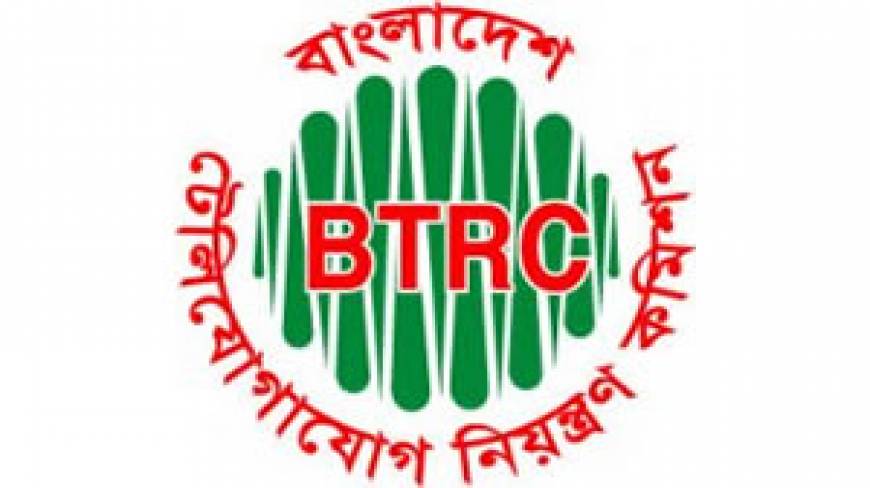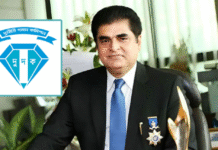The country’s telecom regulator has been bestowing apparently abnormal favours to a private operator for a number of years, allowing the operator to dodge crores of taka in legal government fees.
In 2004, private telecom operator Banglaphone obtained a licence for providing land-phone services to the country’s northeast zone.
Since 2011, the company has also been running an optical fibre networking business on temporary permits from the Bangladesh Telecommunication Regulatory Commission (BTRC).
However, contradicting the telecom act, the watchdog has not informed the Telecommunications Ministry about awarding the permission and has not made any arrangement for getting a proper NTTN licence for the company.
Every year since 2011, the BTRC kept on renewing Banglaphone’s permit by a year.
According to the Nationwide Telecommunication Transmission Network (NTTN) guidelines, if Banglaphone was operating with a proper licence, it would have needed to pay the government an initial licensing fee of Tk3 crore, a one-time application fee of Tk50,000 and Tk25 lakh as annual fees over these four years.
The guidelines also suggest that the company would have needed to place a Tk10 crore bank performance guaranty and share 1%-3% of its gross annual revenues with the government.
However, the BTRC has reportedly allowed the company to operate its optical fibre network without paying any of these fees and meeting any of the other criteria.
Sources said some senior BTRC officials had been bypassing all the rules and regulations to favour Banglaphone.
Last year, Banglaphone filed a formal application for a proper NTTN licence. The plea, which is currently under government consideration, was forwarded to the ministry by BTRC in December last year.
As the government did not make any decision about the plea by April 22 – the expiry date of the last BTRC “extension” – the company went to the High Court.
The court ordered the government to allow it to continue operations until the disposal of the application, on consideration that Banglaphone had many subscribers and had inked resource sharing deals with companies such as Robi and Teletalk.
Following the court order, in a letter on May 8, the ministry allowed the company until April 23, 2015 to continue its operations but on condition that it “cannot build any network and install any instrument within this period” and directed the regulator to fix annual fees and revenue sharing rates.
However, a May 26 BTRC letter sent to Banglaphone which the Dhaka Tribune has obtained, does not include any of the conditions set out by the government.
Moreover, the BTRC letter does not say anything about the April 23, 2015 time limit that the government has set for the company. The Dhaka Tribune has compared copies of both the letters and has found the anomalies.
Interestingly, during one of its meetings on April 16, the telecom watchdog discussed the probable penalties including a Tk300 crore fine and cancellation of licence that Banglaphone might have to pay for flouting rules.
However, according to the minutes of that meeting, it ended up not making any decision in this regard. The Dhaka Tribune has also learnt that the BTRC has not officially disclosed any of this to the ministry.
Banglaphone Managing Director Amjad Khan admitted getting a permit from the BTRC which did not mention any time bar for continuing operations.
“Our company did not ask for any favour. We simply wanted the ministry, the BTRC and all other government agencies to create a level-playing field for all,” Amjad Khan told the Dhaka Tribune.
When asked about the anomalies between the letters from the government and the BTRC, Amjad suggested that the BTRC had merely simplified the language for him.
He also claimed that the government could not bar Banglaphone from expanding its network because it would contradict the court order.
“This clause is a violation of the court order. The ministry defied the court but BTRC, in its extension permit, did not violate the court order,” Amjad said.
A senior ministry official told the Dhaka Tribune: “Honouring the court order, we allowed one more year [to Banglaphone] against some conditions, which already apply to the other players. The government will decide on the application within a short time.”
When asked whether he knew that the BTRC had discussed penalties for the company, Amjad said: “Let us not talk hypothetically on what will happen in future. Banglaphone did not do anything wrong.”
BTRC Chairman Sunil Kanti Bose was not readily available for a comment on the matter because he was out of the country.
Md Giasuddin Ahmed, vice-chairman of BTRC, told the Dhaka Tribune: “Actually I do not have any idea about the present situation of the Banglaphone issue. I heard that there were some problems but I do not know why we are not carrying out the government’s orders.”
A couple of months ago, the Dhaka Tribune reported on another anomaly in Banglaphone’s declaration, which included the names of Technohaven Co Limited and Nitol Motors as partners in a consortium, although these two companies had pulled out in 2005.
After the report was filed, the telecom regulator sent a correction letter to the ministry right away, saying it was an “unconscious mistake” but did not recommend any penalty.
Source: Dhaka Tribune










